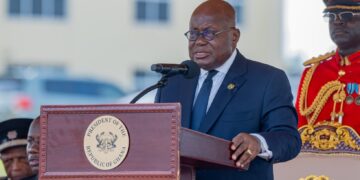The Executive Council of the United Nations World Tourism Organization (UNWTO) now includes Ghana.
Ghana received an outstanding 17 votes out of the 20 legitimate votes made during the UNWTO Commission for Africa meeting held in Mauritius, serving as a resounding witness to its expanding impact and dedication to the world of tourism.
The fact that Ghana won in a crowded field, where five other nations also won seats on the coveted council—Nigeria, Rwanda, Namibia, Tanzania, and the Democratic Republic of the Congo—underscores the importance of this victory.
Unquestionably, the election of council members was the main event at the 66th UNWTO Commission for Africa conference. The meeting’s topic, “Rethinking Tourism for Africa: Addressing Global Challenges; Promoting Investment and Partnerships,” perfectly encapsulated the atmosphere of innovation and cooperation that dominated the proceedings.
This electoral victory serves as a precursor to the UNWTO General Assembly meeting, which will officially ratify the new council members in Uzbekistan in October.
The UNWTO Executive Council’s mission is of utmost significance. This organization, working with the Secretary-General, is essential in developing and putting into action plans aimed at enhancing the impact of tourism on a worldwide scale.
The council works to strengthen the basis of tourism, promote environmentally friendly behaviors, and build cross-border alliances.
Ghana’s Minister of Tourism, Arts, and Culture, Dr. Ibrahim Mohammed Awal, expressed his appreciation for the confidence his fellow ministers had placed in him, demonstrating the country’s resolve to propel travel and tourism to the top of the global development agenda.
Dr. Awal emphasized Ghana’s commitment to using tourism as a strong force for transformation.
This accomplishment is in line with President Nana Addo Dankwa Akufo-Addo’s direction to use cutting-edge tactics to advance tourism, the arts, and culture in ways that significantly advance national development.
In line with the President’s ambitious plan, two million foreign visitors will be welcomed by 2025, generating $6 billion in revenue each year.
Dr. Awal stressed the necessity of sustainable tourism methods to protect the environment and guarantee that nearby people benefit from tourism.
In order to increase Africa’s competitiveness overall, he also urged for investments in tourism infrastructure and capacity-building along the tourism value chain.














